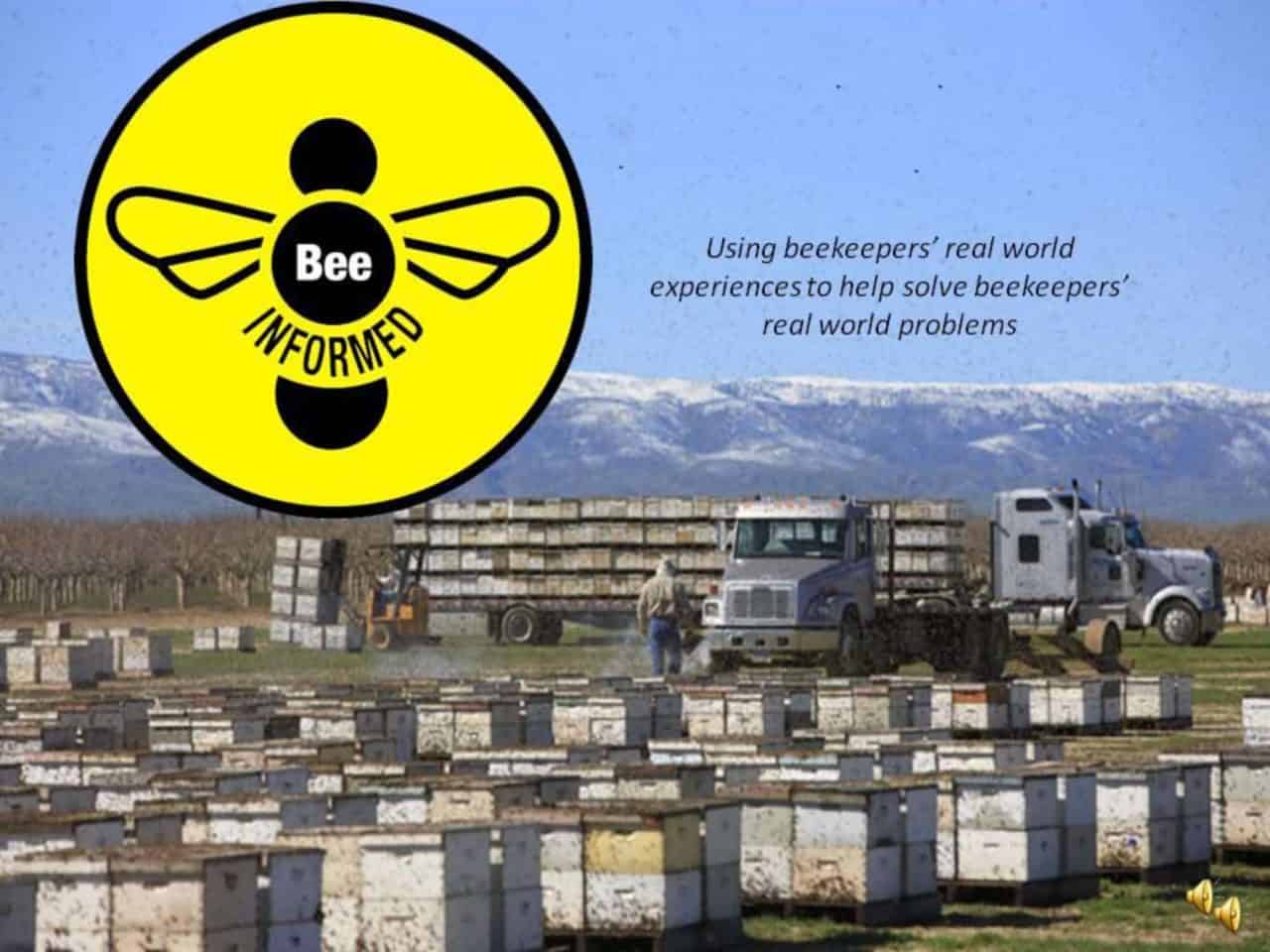"Dr. Dennis vanEnglesdorp of the University of Maryland describes the newly-created Bee Informed Partnership. Utilizing beekeepers real world experiences to help solve beekeepers real world problems."
Author: The Bee Informed Team
Urban Beekeeping in Washington
Hunt. (2012). The Rise of Urban Beekeeping in Washington. The Washingtonian. November 2012. "Colony Collapse Disorder is a real concern—but some backyard beekeepers are trying to combat it." Hunt. (2012). The Rise of Urban Beekeeping in Washington. The Washingtonian. November 2012.
Survey Winner 2012
Our survey winner is Bob Miller from Watsonville, CA. Our California BIP Tech Team visited Bob and provided sampling and analysis of ~50 of his colonies.
Boots on the Ground: A Radical Shift in the Interface Between Research and Real World.
McNeil. (2012). Boots on the Ground: A Radical Shift in the Interface Between Research and Real World. Bee Culture. April 2012. "Booooos from the back of the audience were directed to the young woman on the stage at the California Beekeepers Association Conference. Without the context, the message could easily have been misconstrued....." McNeil. (2012). Boots on the Ground: A Radical Shift in the Interface Between Research and Real World. Bee Culture. April 2012.
Coordinated BIP effort aims to cut in half annual bee colony losses.
BEE Informed Partnership: Coordinated BIP effort aims to cut in half annual bee colony losses. by Richard Lehnert Good Fruit Grower magazine article, March 15th, 2012. "After five years of annual colony losses near or above 30 percent, beekeepers have settled in for the long haul in their struggle to find solutions to the problem of unsustainably high honeybee death losses. Scientists have also settled in to help them..."continue article here...
Worldwide Honey Bee Colony Losses Continue
http://www.ibra.org.uk/articles/US-honey-bee-winter-colony-losses-2010-11 International Bee Research Association The world's longest established apicultural research publishers Press Release[embargoed until 00:01 GMT on 1/2/12] Worldwide honey bee colony losses continue Since 2006 there has been concern worldwide about losses of honey bee colonies, especially the phenomenon of “Colony Collapse Disorder” in the USA. Information about the extent of these losses has,to date, been patchy, unsystematic and difficult to compare year on year and from country to country. Today, for the first time, the results of systematic surveys in Europe, north America, China, Israel and Turkey are published together in the Journal of Apicultural Research. The research has been carried out…
HoneyBeeNet: The Nectar Flow by Hive Scale Data and Satellite Imagery
honeybeenet.gsfc.nasa.gov Hive scale data collected by participating beekeepers, satellite imagery of hive scale sites, and instructions on how to participate in collecting hive scale data is available at honeybeenet.gsfc.nasa.gov
APHIS US Honey Bee Pest and Disease Survey 2010/2011 Survey Report
The APHIS 2010/2011 Honey Bee Pest and Disease Survey report
USDA/AIA Survey Reports 2010/2011 Winter Honey Bee Losses
USDA/AIA Survey Reports 2010/2011 Winter Honey Bee Losses http://www.ars.usda.gov/is/pr/2011/110523.htm
UCCE to Lead Technology Transfer in New Honey Bee Health Initiative
http://ucanr.org/news/?uid=1386&ds=191 UCCE to lead technology transfer in new honey bee health initiative: The technology transfer component of a newly funded nationwide initiative designed to monitor and maintain honey bee health will be hosted by UC Cooperative Extension in Butte County... UCCE news story: http://ucanr.org/news/?uid=1386&ds=191


